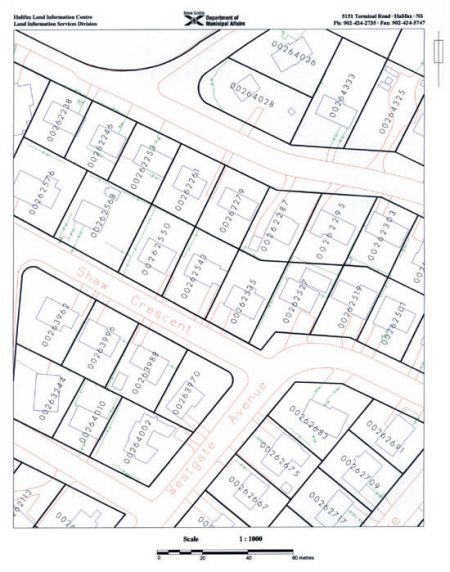KJIPUKTUK (HALIFAX) - The closure of most Land Registry offices in Nova Scotia that was announced as part of the provincial budget is more about a looming privatization than about saving taxpayers' money.
Thirteen of the eighteen Land Registry offices in Nova Scotia will close. Eleven workers will lose their job, 24 others have been offered positions at the five remaining Registries.
“It is really about adapting to our new reality and look at the business,” Service Nova Scotia CEO Joanne Munro told the New Glasgow News.
It's not that big a deal, because the information is mostly available on-line and only lawyers and land surveyors are affected, Munro suggested.
That's not entirely correct.
Access to Property On-line, the browser-based application that provides online access to land ownership and property maps is available to subscribers only. That access costs a minimum of $99.65 per month.
Ordinary folks will still need to visit a registry office in person to see a map of their property and acquire a print-out.
But the announced closures are bad news for other reasons as well.
Lately, civil servants who work in rural Nova Scotia are in the provincial government's crosshairs.
Over the last few months there have been layoffs in provincial campgrounds and visitor centres and among Community Services workers in Guysborough and Barrington. A Community Services office in Sheet Harbour was also closed.
Each job lost in rural Nova Scotia is a major blow to its fragile economy.
As gas stations, schools, and post offices in rural Nova Scotia disappear, this is not the time for government to kill yet more rural jobs. If we want to reverse the trends of a decreasing and aging population we have to offer young people an incentive to stay.
Why not expand the services offered by the registries to include things you can now only get at an Access Centre? After all, both Land Registries and Access Centres are run by Service Nova Scotia.
It looks like privatization is the real reason.
Mark Furey, the minister responsible for Service Nova Scotia, told journalists earlier this year that Land Registries, the Registry of Motor Vehicles and the Registry of Joint Stocks all could be privatized.
What company would want to acquire a Land Registry system that includes tiny registries in communities such as Arichat, Port Hood, or Shelburne? You're not going to get rich off the Land Registry in Baddeck.
But running a stripped down Land Titles system is money in the bank.
Registration is mandatory by law, so your clients are a captive group. Each time they mortgage or buy a property the cash register rings.
Depending on how the deal is structured, the privatization could also include all the value-added products derived from the land registry system. Digital property maps and electronic ownership databases are worth a lot of money. Again, especially if you're the only game in town.
"The focus is for government to restructure and get back to our core business," said Furey.
It so happens that Land Registries have been part of government's core business for the last 150 years or so. In fact, there never was a time that land registries were not part of that core business.
Maybe we should just keep it that way.
Disclosure: In a former life this reporter worked at Service Nova Scotia in various management positions.
Follow Robert DeVet on Twitter



